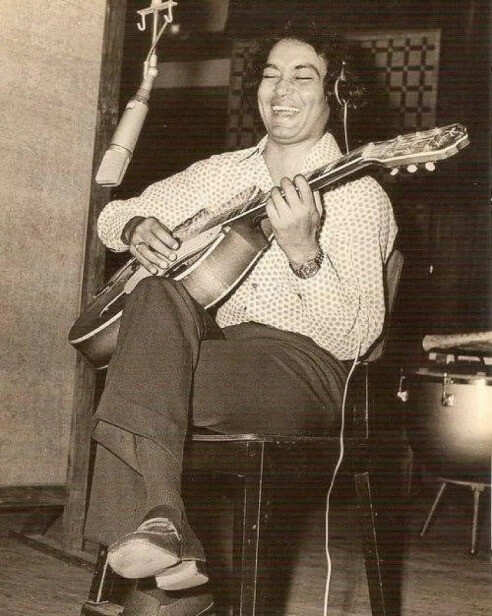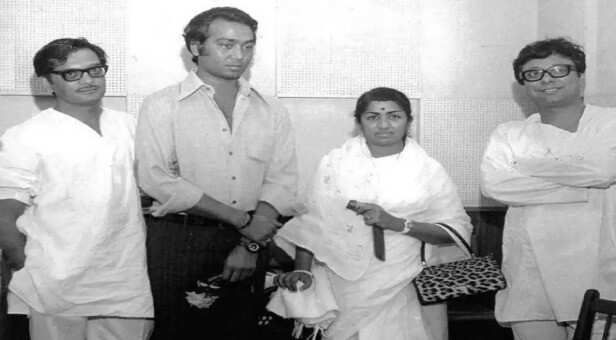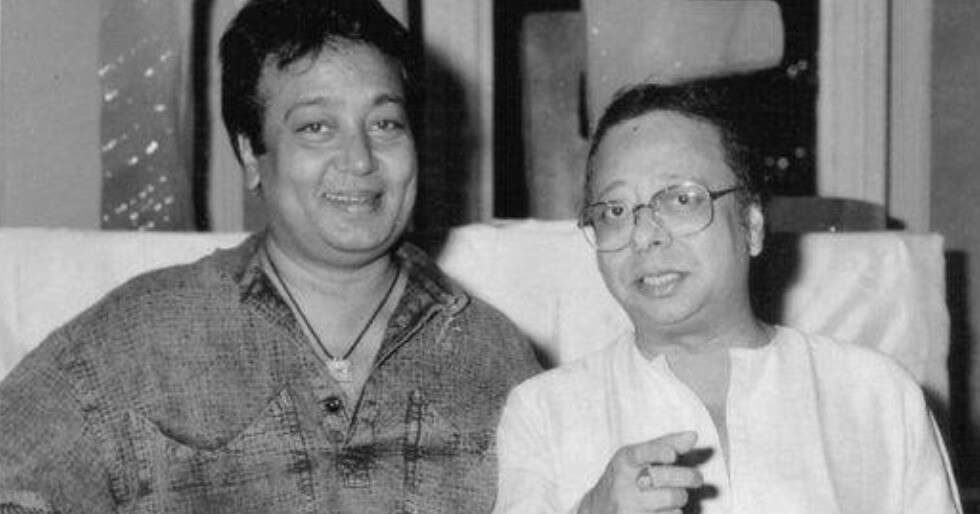On RD Burman’s demise anniversary right now, Filmfare brings you an explosive interview with late singer Bhupinder Singh. On this interview from 2016, Bhupinder, who was recognized for tracks Hoke Majboor Mujhe Usne Bulaya Hoga, Aane Se Uske Aaye Bahar, Kisi Nazar Ko Tera Intezar Aaj Bhi Hai and plenty of different classics, speaks extensively about RD Burman and their 40-year affiliation. This can be a should learn…
Bhupinder Singh’s residence in Bandra just isn’t lived in anymore. However it resonates particular recollections for him. One among them is of spending lengthy evenings jamming with shut pal and maestro RD Burman. “Every time Pancham (as RD Burman was fondly addressed) had a tune to share, he’d come right here, holding two glasses of whisky as he received out of his automotive!” he recollects.
RD Burman not solely gifted Bhupinder a permanent friendship however he additionally made him sing eternal numbers. “I’m shocked when the GenNext enjoys these numbers. They weren’t even born then,” says the singer whose songs Beeti na beetai raina and Nam gum jaayega have outlived generations. The dichotomy takes you unexpectedly. Somebody who was synonymous with plaintive numbers like Kabhi kisiko muqammil jahan (Ahista Ahista), Karoge yaad to (Bazaar) or Ek akela iss shaher mein (Gharonda), additionally strummed the guitar for groovy tracks like Dum maaro dum (Hare Rama Hare Krishna), Chura liya (Yaadon Ki Baarat), Mehbooba mehbooba (Sholay) and even the title monitor of Satte Pe Satta as a part of RD Burman’s orchestra.”
The truth is, Bhupinder started as a guitarist after which moved to playback singing and ghazals. His sensibilities had been harm when he heard the cult Dum maaro dum being ‘lower and operated upon’ by composer Pritam for Rohan Sippy’s remix in Dum Maaro Dum. To not point out the lyrics Potty pe baithe nanga! “It pains me when classics are remixed. Why remake what’s already been made? How are you going to remix Pancham’s music? It was trendy even 30 years in the past. Why tamper with and warp another person’s tunes?” he rants. “Apparently, Dev saab (Dev Anand) had requested them to not contact the music. What majboori (helplessness) will need to have pushed the director and the composer to go this far? Tampering a basic disturbs the souls of those that are not any extra.” Plagiarism just isn’t restricted to home shores, he states. He reveals a rap group known as Def Jam has based mostly its monitor What’s taking place on Dum maaro dum.
He recollects how the unique quantity filmed on Zeenat Aman was composed within the Nineteen Seventies. “I bear in mind Dev saab explaining the scene to Pancham. He had a method of offering ‘reside’ visuals… psychedelic lights, ganja, chillum, smoke! I used to be sitting behind them and listening. I began taking part in a tune on my electrical guitar. Quickly everybody stopped speaking and commenced listening to it. Pancham exclaimed, ‘That is it!’ And the remainder is historical past.”

His profession hit a excessive notice when he sang the classical numbers in Gulzar’s Parichay, which he received by sheer luck. “I used to be taking part in the guitar for Pancham’s Musafir hoon yaaron when Kishoreda stated, ‘Bhupi se is movie ke classical nagme gawa. Mujhse nahin.’ The trinity of Bhupinder-Gulzar-Burman then went on to offer gems like Beeti na beetayi raina (Parichay) and Naam gum jayega (Kinara) through the ’70s.

He admires the late actor Sanjeev Kumar for whom he sang a couple of numbers together with Madan Mohan’s Dil dhoondhta hai (Mausam). “He may categorical the emotion and energy concerned within the singing. He made lip synching look pure with the way by which the veins on his throat and the traces on his brow grew to become outstanding.”
He provides, “Dharmendra too gave such stunning expressions to Ek hello khwab in Kinara. The music had random breaks, it had prose, it had poetry and even Hema ji (Malini) singing in between.” He additional revealed, “Pancham and I, each appreciated listening to music at full quantity, exchanging the most recent music information, going round city in his Fiat… We addressed one another with gaalis (abuses). He by no means praised me overtly but when some composition sounded higher after I had tweaked it, he’d throw something he may lay his arms on at me, even a matchbox, to indicate his appreciation. Sadly, all his producer buddies abandoned him when he was not doing nicely. However 1942 – A Love Story made him immortal.”
